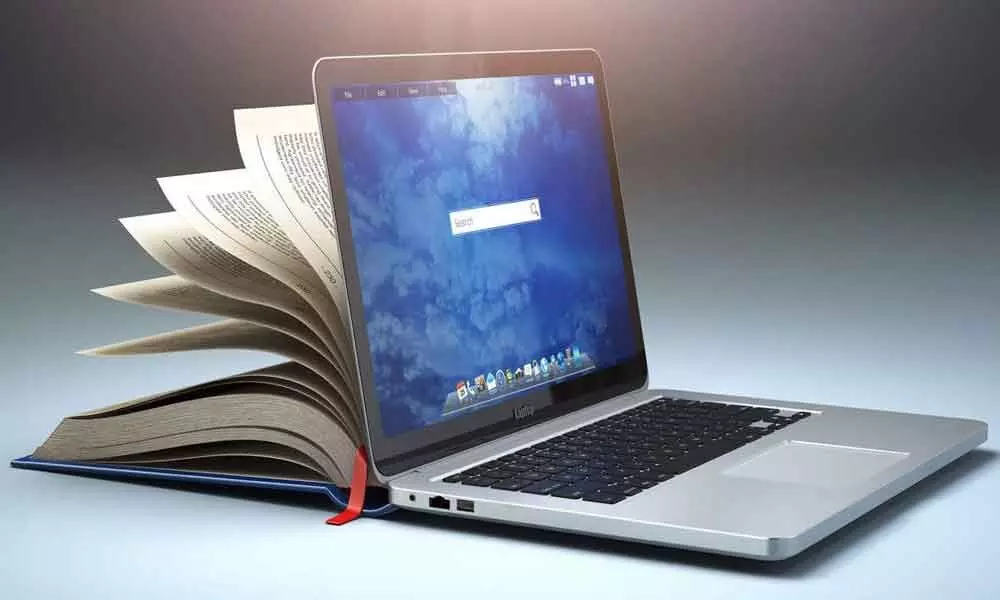Education in India moving in the right direction

Education in India moving in the right direction
Education plays a vital role in promoting human and societal well-being. It also contributes towards the economic development and growth of the nation.
Education plays a vital role in promoting human and societal well-being. It also contributes towards the economic development and growth of the nation. The system of knowledge dissemination and exchange in India has charted a rather interesting trajectory. In the years following 1947, several institutes of excellence were set up by the government to ensure students were able to receive higher education within the borders of the country.
The later years saw the establishment of a host of private institutions that promised to offer not only quality education but also aid in the development of students into contributing members of the society. In recent times, as we move towards the era of e-learning, there have been several more advancements made in the domain of higher education. As we work towards paving the road for a better and brighter future, it is vital to take a look back to better gauge where we are coming from and where we are headed.
The UGC recently released a draft National Higher Educational Qualification Framework. This was founded on the reforms that The National Education Policy (NEP) had laid in July 2020. It points towards a new and flexible understanding of teaching and learning in the country, a much needed intervention to bring to light a critical issue that often gets overshadowed when it comes to our higher education structure - the fact that it is outdated, fossilized and rigid in its outlook.
The idea behind this draft has been to develop a nationally accepted and internationally comparable structure of higher education. The parameters on which learning outcomes will now be set and assessed will encompass job readiness, theoretical knowledge, technical skills, application of knowledge, problem-solving abilities, ethical and moral values as well as an entrepreneurship mindset.
The NHEQF draft reinforces the need to rework traditional concepts of what education has meant in the past. Introducing the basics of design at the school and college level offers an avenue to change the way in which we perceive education, teaching and learning. It encourages students to think beyond what they have been trained to, to find answers outside the box and to learn to ask the right questions. Design is a discipline that is primarily practice and process-based. It cannot be taught and learnt within the four walls of a classroom. The experimental, exploratory and hands-on world of design requires an innate curiosity, imagination and creativity.
When it comes to learning the basics of design, practical research, critical thinking, thoughtful reflection and confident expression are key. In order to achieve this, it is vital that students are equipped with a strong core skill-set right at the outset to ensure that they can make sense of and thrive in the ever-evolving and rapidly changing field of design.
With technological advancements, the horizon for students in the country has only expanded. A radical transformation that the higher education scenario has seen in recent years not only in the country but also globally has been a shift to virtual learning. The COVID-19 pandemic that gripped the world forced us to rethink our definition of education. While the hurdles and challenges were many as teaching and learning methods we had long been accustomed to had to be adapted to the present times, what also came to light was various ways we can leverage technology and online tools to our advantage and make the best of the situation.
Virtual classes meant that students and teachers could interact from anywhere across the globe. It provided a new sense of flexibility and fluidity. Classrooms are no longer limited to physical locations. Online teaching has paved the way for a model of learning where both students and teachers broke out of predefined roles and took initiatives to experiment, explore and engage with one another. Digital portfolios, virtual assessment and review methods were quickly incorporated by institutes.
It not only gave rise to greater collaboration amongst peers and between students and professors but also provided the space for the growth of an entrepreneurial mindset and a problem-solving and practical outlook to life in general. They have been exposed to an education of a new kind, one that encourages them to unlearn and relearn as education and learning is an ongoing process. Blended learning and hybrid education is the new way ahead.
A factor that we need to keep in mind, however, is that higher education should ideally lead to knowledge creation and innovation. As we enter a new year, our focus needs to be in the right place: on creativity, problem solving skills, emotional growth and holistic development. Design education highlights the importance of experiential and blended learning and, in the process, disrupts the silos in education that we have grown so accustomed to. While we have come a long way and there is a great deal to be proud of, we need to continue working towards a learning space that nurtures explorers, experimenters, thinkers and innovators that are well equipped to face the challenges that the coming times will bring.
(Writer is Director of Indian Institute of Art and Design(IIAD))








